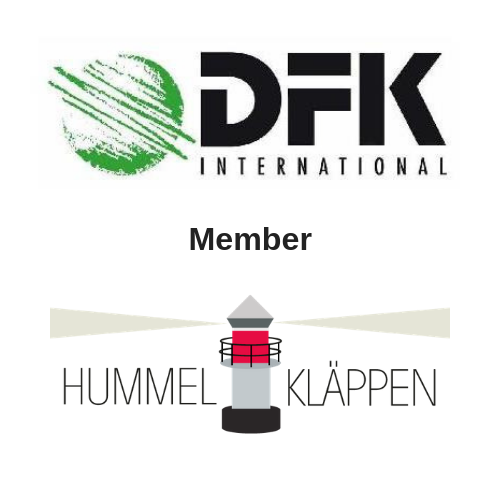
Like all other countries in Europe the introduction of GDPR, The General Data Protection Regulation has been a big issue in Sweden during the last month. The new legislation took effect the 25th of May 2018. As an accountant and accounting consultant, most of the new data protection regulation is affected. Everyone handles personal information in any form both for internal purposes, such as customer registers and in the role of auditor or accounting consultant. In our customer assignments, primarily payroll assignments are affected. Until now, payslips have been mailed to the employees, which is not considered to be compliant with the new law. In order not to return to sending the payslip on paper, software vendors created personal logins to access their salary messages online.
From March 2018, smaller companies that use the K2 regulatory framework can now submit their annual report digitally to the Swedish Companies Registration Office. During spring 2019 will the bigger limited companies that apply the K3 regulatory framework also be able to submit the annual report digitally? The Swedish Companies Registration Office have the assignment to develop the service to all corporate forms which, according to law, must submit an annual report. The work should be finished in March 2021. In the long run, it may be mandatory to submit the annual report digitally in Sweden as in many other European countries.
Many firms are also looking at the alternative to sign more documents with digital signature such as the annual report, letter of engagement, annual general meeting and other documents that should be signed by the board. The ability to sign digitally is increasing more and more from our customers, as well as the ability to digitally submit their material and to recall reporting digitally. In the long term, it will probably be a competitive factor.
The government also demands more and more digital submission of data. From 1 July employers should provide information on paid-up allowances for work and tax deductions for each employee on a continuous basis, instead of once a year. The change of laws takes place step-by-step and first out are companies that are more than 15 employees and are covered by staff register (a staff register is a list of the people working at the company when they start and end their work periods. The purpose of staff registers is to counter black work and promote sound competition). The next step will take place on January 1, 2019.
The government has handed over a remittance to the Law Council about reduction of the corporate taxation from 22% to 20,6%. At the same time there will be a general limitation of interest rate deductions in the corporate sector. One of the purposes of lowering corporate tax and limiting interest deductions is to counter tax planning with interest deductions and contribute to increased tax neutrality through broader tax bases. According to the memorandum, corporate tax is reduced in two steps until 2021, but the new rules will apply from January 1, 2019. The remittance proposes a deduction basis of 30 percent of taxable EBITDA. No limitation of negative net interest income will amount to up to five million kronor for the Group. This means, according to the government, that only about one percent of the companies are expected to be covered by the general restriction rules. Small and medium-sized enterprises should be largely unaffected by the withdrawal limitation and receive a tax reduction in practice.
In September it is the parliamentary elections in Sweden. This means that the seated government is trying to implement its proposals before the election. After the election, there are usually not many legislative proposals before the new government has been established. Major changes will probably take place in spring 2019.

DFK International is a leading global association of independent accounting firms.
Hummelkläppen are experienced in providing intelligent and personalized audit, accounting, payroll, tax and business advisory services for companies expanding to Sweden.
To contact Hummelkläppen, tel: +46 854583120 or by email: info@hummelklappen.se.
Committed to a vision to be the leading services and solutions provider for international companies doing business in Sweden, Hummelkläppen are proud to be DFK members.

‘Business Culture Essentials’ online course
In-depth courses on key international destinations
Video masterclasses
Comprehensive guides on doing business in 40+ countries
Country fact files for 40+ destinations
Expert blogs and articles
© Keith Warburton 2025, All rights reserved
World Business Culture, West Down, Chalk Hill, Soberton, Hampshire SO32 3PH